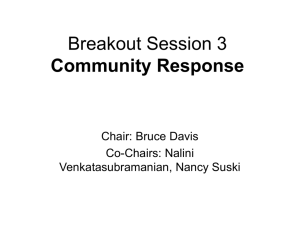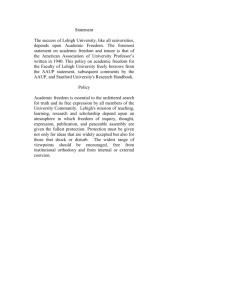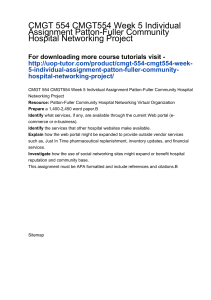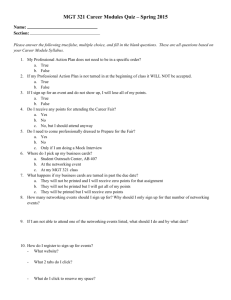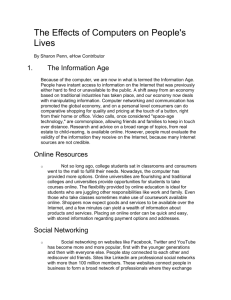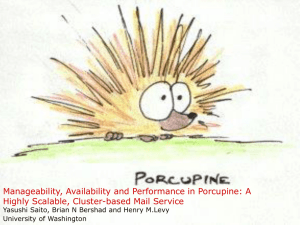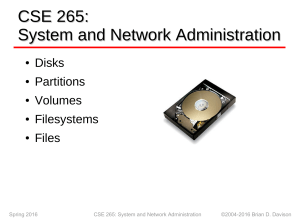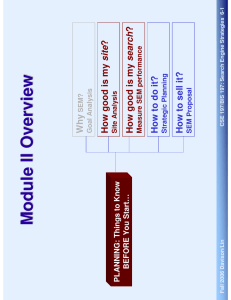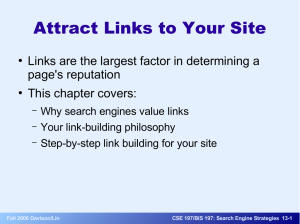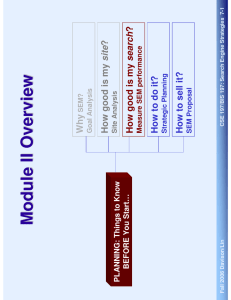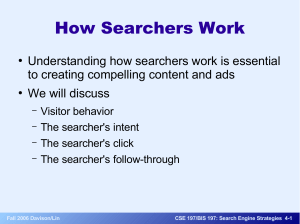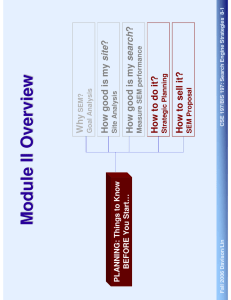CSE 498: Advanced Topics in Networking
advertisement
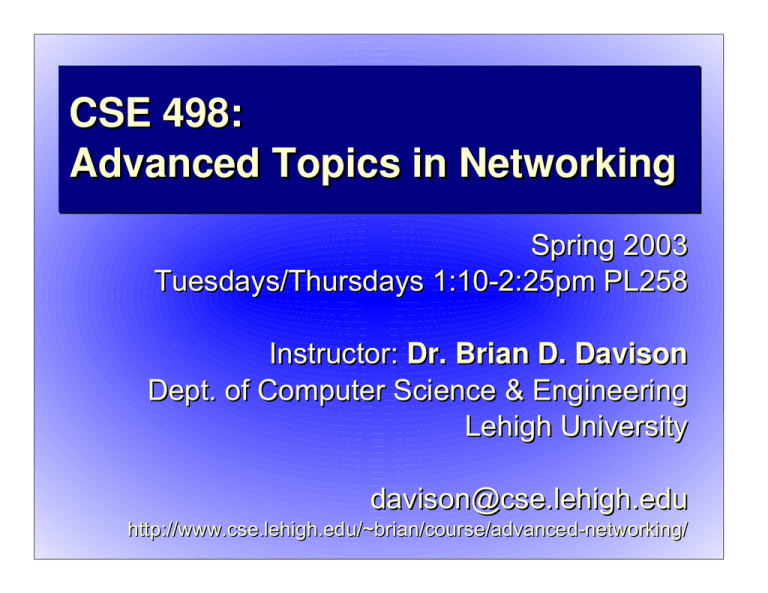
CSE 498: Advanced Topics in Networking Spring 2003 Tuesdays/Thursdays 1:10-2:25pm PL258 Instructor: Dr. Brian D. Davison Dept. of Computer Science & Engineering Lehigh University davison@cse.lehigh.edu http://www.cse.lehigh.edu/~brian/course/advanced-networking/ Advanced Topics in Networking Seminar course No textbook – all papers No exams – paper critiques (20%), presentations (20%), participation (20%), and projects (40%) Prerequisite: a prior computer networks course Topics to cover Peer-to-peer networks architectures and implementations Content networking Web content distribution Scalable services Traffic measurement and modeling Classic networking old and new Initial Course Approach Except for today, each paper will have: a student presentation 15 minutes max, 5 slides max a student critic (devil's advocate) 5 minutes to say why the paper should never have been published, or at least why it is not useful now class discussion, followed by a quick vote about 15 minutes Approach, cont. In each class we will plan to present and discuss two papers. you will need to write one review/critique of the paper of your choice. The paper presentation and best review will be posted online. Semester Research Project Individual, or groups of two (that will be asked to grade each other). Should be the beginning of what could be a publishable project. Some networking-oriented topic. Write a scientific paper at the end. Publish as a technical report if not more. Present project at the end of the semester. Why read scientific papers? Also, how to read scientific papers? Why review papers? How to write good papers? What will networking be like: In ten years? Twenty? What will computers be like? Should they be connected using the technologies in today's Internet? Homework Read meta papers for today Read two papers for next class Write one review (your choice of paper) No length guidelines Technical writing – clear, concise, citations, etc. Assume it will be published – high quality Use historical perspective when appropriate Turn in paper copy at next class
